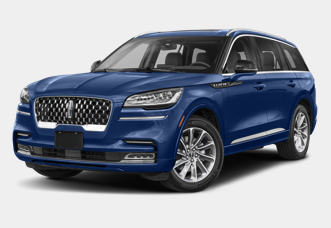
Lincoln brakes are extremely reliable and durable, but all brakes eventually undergo wear and tear. Always keep your stopping power strong and your driving safe by looking out for the following indications of brake problems. If required, you can have brake repair promptly carried out at your local Lincoln dealership.
6 Signs Your Lincoln Needs a Brake Repair at Your Local Lincoln Dealer
Brake Warning Light Appears
Fortunately, modern Lincolns have an array of sophisticated sensors spread throughout the vehicle. When any kind of brake issue arises, you’ll usually see the brake warning light appear on your dashboard letting you know it’s time to see a technician.
Lengthier Stopping Distances
One of the more hazardous symptoms of brake trouble is longer stopping distances. If your brakes aren’t slowing and stopping you as firmly as usual, it’s best to pull over and refrain from driving again until the problem is identified and repaired. In this situation, you might be experiencing temporary brake fade, which is a short-term reduction in brake force resulting from brake components overheating.
Burning Smells From Below
Brakes can sometimes overheat due to prolonged braking without enough rest to cool down. There’s a danger of overheating when navigating heavy stop-and-go traffic or driving along steep hilly roads that require a lot of braking. Increasing the weight of your vehicle with a heavy load or trailer can also put more strain on the brakes and lead to overheating. Overheating brake components sometimes emit a burning smell that you might catch inside the cabin above.
Spongy-Feeling Brake Pedal
Likewise, a spongy sensation to the brake pedal might indicate a serious problem. Sponginess usually means that one of your brake lines is leaking brake fluid. When brake fluid leaks, air gets into the brake line, lessening the hydraulic pressure inside. This in turn reduces the strength of the stopping signal, making your brakes less effective.
Veering to One Side When Braking
When brake problems occur, the vehicle will sometimes tug to one side whenever the brakes are applied. This veering happens because the stopping power is now stronger on the side of the car that doesn’t have a brake problem. Veering will only happen when the brakes at the front of the car have a fault.
Squealing or Grinding Noises
When brake pads are almost worn out, they’re designed to emit a high-pitched squealing sound. If you don’t promptly have a squealing brake pad replaced, you might start to hear rougher grinding noises, which means the brake pad’s bare metal casing is now scraping directly against the rotor. This can rapidly cause a lot of damage.
Have your brakes checked and repaired today at West Point Lincoln of Sugar Land in Houston, TX. At our locally trusted full-service dealership, we’re committed to putting customer satisfaction first and foremost in all that we do.





